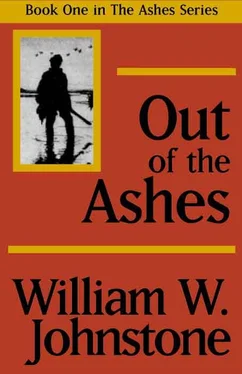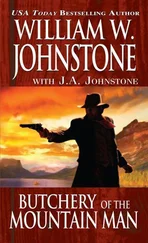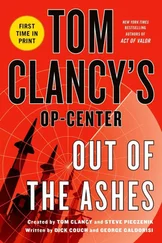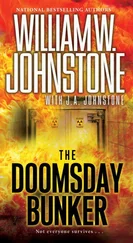William W. Johnstone
OUT OF THE ASHES
This country, with its institutions, belongs to the people who inhabit it. Whenever they shall grow weary of the existing government, they can exercise their Constitutional right of amending it, or their revolutionary right to dismember or overthrow it.
—Abe Lincoln
“Are you nuts?” Ben Raines asked, fighting back an urge to laugh in the man’s face. “I mean, honest to God, fellow, have you got both oars in the water?”
The sarcastic slur and intellectual insult was lost on the visitor. “I assure you, Mr. Raines, I am in full command of all my faculties. You came highly recommended to me. To us.”
“By whom?”
“I cannot divulge that information. Not just yet. I am sorry.”
“How do you know I won’t go straight to the FBI with this… scheme of yours?”
The man pointed. “There is the phone. Call them. You can’t prove a thing. But we can—about you.” He smiled.
“The FBI knows damned well I was a mercenary back in ‘69 and ‘70. So does the State Department. I made that very clear in several of my novels. Blackmail won’t work with me.”
The man shrugged. “It was worth a try.”
“Look,” Ben said, “I don’t like the way this country is going any more than you do—believe that, or not. But violent overthrow—even if you people had the men and equipment, which you don’t—is not my forte.”
“But we do have the men and equipment, Mr. Raines.”
“You say. I don’t want any part of it.”
“You’re certain?”
“As certain as the sun comes up in the east.”
“Then we badly misjudged you, Mr. Raines.”
Ben shook his head in disagreement. “No, you didn’t. If you had approached me just a few years ago, back in ‘80, or even ‘82, I probably would have gone along with you. But now… no.”
“May I ask why not?”
“Because for the past few years I’ve been very comfortable. And getting fatter all the time. My books are selling well; no bill collectors calling every night; everything you see around you—including the house—is paid for. I have no reason to rock the boat.”
“If you are so happy, why do you drink yourself into a stupor every evening?”
Ben smiled. “You have been investigating, haven’t you? I didn’t mention happy, did I? Comfortable was the word I chose.”
“Has it not occurred to you that we may be privy to… matters concerning the situation in the world that… you are not aware of, sir? I beg you to reconsider your stance.”
Ben shook his head no.
The man sighed. “Well… you will not be contacted by us again, Mr. Raines. Thank you for your time.” He hesitated, then said, “I… may be making a mistake, Mr. Raines, but everybody is entitled to one. So here is mine: Bull Dean and Carl Adams are still alive. They’re running the show.”
Ben came out of his chair. He stared at the man. “I don’t believe it. Hey! I saw the bodies, buddy.”
The man’s expression did not change. “If you reverse your position, Mr. Raines, just run an ad in the local paper that you’d like to buy a Russian wolfhound. You’ll be contacted.” He turned and was gone into the night, the door closing softly behind him.
Ben sat down. He looked at the half-full glass of bourbon and water on the table. He picked it up and emptied it without taking the glass from his lips.
Bull and Adams alive? No way.
Ben Raines laughed and put the mysterious visit out of his mind. He put on a symphony and got drunk while listening to it. The next morning, the visit was hazy in his mind. After a week, he had forgotten all about it.
Washington, D.C., 1988
“Maybe historians will treat me in a more humane fashion than the press has for the past eight years,” President Fayers remarked to his wife. “But sometimes I wonder.”
“You’ve done a lot of good things over the years, Ed.” She smiled at him, patting his hand. “SALT 5 was only one of them. It’s taken you time, and you didn’t win all the battles, but you certainly didn’t lose the war.”
“Then why, for the past several months, have I had this… uneasy feeling in my guts that… oh, hell, honey—I don’t know. I’ve been a politician all my life. And I know something is going on. I can’t put my finger on it, but… some thing is crawling around the gutters of this city. Some… secret I should know.”
His wife studied him. She knew only too well the sixth sense career politicians develop over the years, and knew it was not to be taken lightly. Her husband had had his finger on the pulse of the world for more than forty years, for the past eight as president of the United States. If he believed something was amiss… it was.
“Ed, this unknown… quantum bothers you that much?”
“Yes, it does, honey. Ever since that gun-control bill went through, the unrest in this country has been building. Baby, citizens of this country—not criminals—have been beaten, jailed, and killed , simply because they clung to the belief—a correct belief, I might add—that they had a right to own a gun. Damn that Hilton Logan for the son of a bitch he is! He and that pack of liberal bastards really stirred it up with that gun-control bill.”
“You didn’t sign it, Ed. Don’t forget that.”
“It still became law.”
“The law of the land, Ed,” she reminded him.
“But,” the president stared hard at his wife of fifty years—more than his wife: his friend, his confidante. “Is it really the law of the land? Of the people, for the people? Is it constitutional?”
“The supreme court says it is.”
“Five to four,” President Fayers grunted. “Not exactly an overwhelming majority.” He walked to the window and looked out at the night. “I cannot forget the news film of that fellow down in South Carolina. That man never had so much as a traffic ticket in his whole life. And agents—federal agents—employed by the very government his taxes help support, shot him stone damned dead! And for what? Because he wanted to keep a .38 pistol in his house. Ah, hell!” The president waved his disgust.
“The country is becoming prosperous once again,” she said, attempting to change the subject.
“What’s the matter?” He grinned at her. “You worried about my blood pressure?”
“Somebody has to. You won’t.”
“After all the social blunders of the ’60s and ’70s… I’ll be goddamned if we’re not heading down the same old road. Just look at that new pack of liberals in Congress.”
“It’s the will of the people, Ed.”
“No.” He shook his head. “No, honey, that’s the shame of it—it isn’t. It’s the will of pressure groups, lobbyists, so-called Christians.” He poured a drink under the frowning gaze of his wife. He downed it neat, then sighed. “Something’s in the wind. And it stinks. I just don’t know what it is.” He sat down. “God, I’m tired. I’m seventy-five years old. I’m tired. I just want out.”
Ben Raines sat on the front porch of his home in Louisiana and for the first time in a long time thought about Vietnam and how, during the quiet moments after patrol, unwinding, but still too keyed up to sleep, he would sit with his buddies and talk of home, women, movies, and politics—as well as other topics.
Two decades had passed since that exercise in futility had ended for Ben. He didn’t think about it often. The nightmares had dimmed into occasional dreams, without substance, the blood in them no longer red and thick and real. The screaming faint night sounds now had no meaning, and the smoke from the burning villages was no longer acrid, did not burn his eyes or leave a bitter taste on his tongue.
Читать дальше












